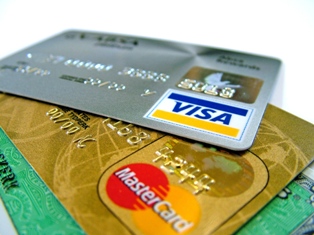Many Chicago Consumers Living in Denial about Out of Control Credit Card Debt
Most Americans admit to being worried about the credit card debt crisis. But when it comes to admitting a personal debt problem, few seem willing to fess up.
Nine out of 10 people polled in a Bankrate.com survey said that debt was not a source of friction in their lives. Yet statistics show that the average U.S. consumer owed approximately $4,200 in 2011. Something isn't adding up.
Time and time again, Chicago bankruptcy attorneys have seen clients fall deeper into debt because they are in denial that they need help. Had they taken action earlier - by filing for Chicago bankruptcy, for instance - they may have been able to stop foreclosure or make eliminating debt much simpler.
Many times it's easy to accept that a friend or neighbor is in debt - but hard to come to terms with the fact that you have a problem. There's also the shame factor. Many folks are too embarrassed to admit that their finances are in sorry shape. But it's important to realize that if you're in debt, you're not alone.
Years of dismal employment rates, dropping real estate prices, and stagnant wages make paying the bills difficult for everyone. Debt may not be entirely your fault. But until you admit you have too much debt, it will be impossible to help alleviate it.
A recent Bankrate.com article looks at the best ways to tell whether you have an issue with debt.
Your Spending Is Out of Line with Income
Is your take-home pay falling while your credit card balance is rising? Whether it's because of reduced hours, a layoff, or rising consumer prices, this is a pattern that can be very hard to correct once it starts. The larger a credit balance gets, the faster it continues to grow. Sure, it's easy to hold out hope for that raise or new position - but there's no guarantee that it will come through. And if it does, your debt may be beyond help at that point. When you can't stop spending more than you're earning, it's time to seek help.
You Never Pay More than the Minimum
When money is tight, it's tempting to make the smallest payment possible. But doing so will cost you a lot in the long run. If you're paying only $25 on a $500 bill, that means you're paying interest on $475 a month - plus the thousands of dollars you may already owe. The problem is that once you make a couple minimum payments, your balance can rise so rapidly that you can't afford to make anything BUT the minimum in the future.
You're Close to Your Credit Limit
Much of your credit score is derived from how much debt you are carrying. Carrying 30% or less of your available limit is ideal. If you are routinely approaching - or surpassing - your limit, it's a sign you have more debt than you can handle. Continuing to do so will only damage your credit score and rack up fees.
You Don't Know Your Balance
Are you in the habit of leaving bills unopened until the due date, or making out a check for the minimum payment without looking at the balance? This is a classic sign of debt denial. Removing yourself from the situation might make you feel better for the time being, but it won't do anything to help your debt. If anything, ignoring the situation only makes things worse.
You're Juggling Bills
Have you ever opened a new line of credit in order to transfer your balance? You may get a lower rate initially, but ultimately you are just shifting debt around. If you find yourself juggling multiple lines of credit, it's a sign that you need to actually lower debt - not just bounce it between cards.
You're Hiding the Evidence
We all deserve a little spending indulgence now and then, and hiding the occasional reasonable purchase from a spouse or family member is somewhat normal. But when it becomes routine, watch out. If you're keeping secrets, it's a sign that something isn't right.
People in debt often feel alone and helpless. These feelings make it hard to rationally take control of the situation and make a change. A professional Chicago bankruptcy attorney can evaluate your finances and determine whether filing for bankruptcy can lower your debt. Depending on your income level, you may be able to qualify for a repayment plan - or wipe out debts entirely.
If you would like to get in touch with a Chicago bankruptcy attorney call the DebtStoppers Bankruptcy Law Firm at 800-440-7235 today for a free debt analysis. Call 800-440-7235.
More Blog Entries:
Young Chicago Adults Needing Financial Advice May Consider Bankruptcy in 2012: January 10, 2012
Consumers with Bad Credit Could Benefit From Chicago Bankruptcy: January 6, 2012
Additional Resources:
15 Signs of Serious Debt Trouble, by Bankrate.com
Denying Our Debt, by Lucy Lazarony, Bankrate.com


